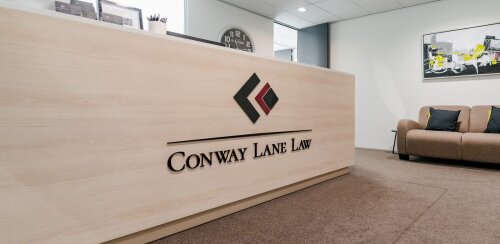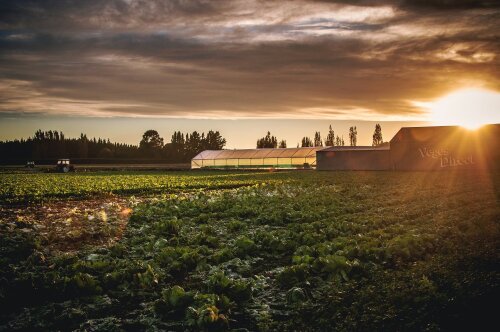Best Aviation Lawyers in Rangiora
Share your needs with us, get contacted by law firms.
Free. Takes 2 min.
List of the best lawyers in Rangiora, New Zealand
1. About Aviation Law in Rangiora, New Zealand
Rangiora is a Canterbury town that hosts Rangiora Airport, a hub for general aviation and flight training. In New Zealand, aviation law operates under a national framework rather than city bylaw rules. The Civil Aviation Authority of New Zealand (CAA) regulates safety, licensing, and airworthiness for all civil aviation activities, including those in Rangiora.
The core legal framework comprises the Civil Aviation Act 1990 and the Civil Aviation Rules. The Act provides the overarching safety and regulatory objectives, while the Rules set out detailed requirements for pilots, aircraft, airfields, and drone operations. Local planning and environmental considerations at Rangiora may interact with national rules, particularly around noise and land use near airfields.
For residents and operators in Rangiora, understanding these laws helps you comply with national standards and engage with local authorities when needed. The CAA and related government sources are the primary references for aviation obligations in Rangiora and across New Zealand.
Key sources to consult include the Civil Aviation Act 1990 and Civil Aviation Rules published by the CAA. See the links in the Resources section for official text and guidance.
2. Why You May Need a Lawyer
Getting tailored legal advice is important when aviation issues arise in Rangiora. Below are real-world scenarios where a solicitor, barrister or legal counsel with aviation expertise can help.
- A Rangiora flight school faces a CAA compliance audit or a licensing concern involving instructors, aircraft airworthiness, or flight crew qualifications.
- A drone operator in the Rangiora area needs to register a remote identification setup, obtain permission for a restricted area flight, or appeals a CAA enforcement decision.
- A local resident near Rangiora Airport experiences persistent noise or nuisance from aircraft and seeks a legal mechanism to address community concerns or negotiate restrictions.
- A business proposes a new aerodrome, hangar development, or runway upgrade in Canterbury and requires coordination of resource consents, planning rules, and CAA approvals.
- A pilot or operator faces penalties or a formal investigation under the Civil Aviation Rules and needs representation in meetings, tribunals, or hearings.
- A contractual dispute arises with an aviation service provider (maintenance, charter, or training) that involves regulatory compliance and risk allocation.
In each scenario, a local aviation lawyer can help with regulatory strategy, evidence gathering, drafting submissions, and negotiating with authorities.
3. Local Laws Overview
New Zealand aviation is primarily national, but local planning and environmental considerations can affect operations around Rangiora. The following laws and rules are central to aviation activity in Rangiora and the surrounding Canterbury region.
- Civil Aviation Act 1990 - The foundational Act that establishes the safety framework for civil aviation in New Zealand and creates regulatory powers for the CAA. It covers licensing, airworthiness, and enforcement throughout the country, including Rangiora.
- Civil Aviation Rules - Detailed operating requirements issued under the Act. Operators in Rangiora must comply with the applicable Parts for their activities, such as Part 101 (Small Unmanned Aircraft) for drones and Part 139 (Aerodromes) for aerodrome operations. These rules govern flight operations, safety, and compliance actions by the CAA.
- Part 101 - Small Unmanned Aircraft Operations - Sets the standards for drone operations, including restrictions on altitude, flight over people, and remote identification or registration where required. CAA Part 101.
- Part 139 - Aerodromes - Regulates the safety and operation of certified aerodromes, including management, emergency planning, and aerodrome certification processes that can apply to Rangiora’s airfield network. CAA Part 139.
- Local planning and environmental rules - Waimakariri District Council and Environment Canterbury influence where aviation facilities can be located and how noise is managed around airfields. For Rangiora, local plans and resource consents may be relevant when expanding or altering aerodrome operations. Waimakariri District Council and Environment Canterbury.
Recent trends include updates to drone regulation under the Civil Aviation Rules to strengthen safety, align with international practices, and expand enforcement capabilities. See the Civil Aviation Authority's Part 101 pages for current rules and compliance expectations. CAA Part 101.
The Civil Aviation Act 1990 provides the safety and regulatory framework for civil aviation in New Zealand.
Official guidance and enforcement information can be found through government sources such as the Civil Aviation Authority and local councils. See the Resources section for direct links.
4. Frequently Asked Questions
What is the Civil Aviation Act 1990?
The Civil Aviation Act 1990 establishes the legal framework for civil aviation in New Zealand. It creates regulatory powers for safety, licensing, and enforcement. It applies to all aviation activities in Rangiora as part of national regulation.
How do I appeal a CAA decision in Rangiora?
Start with a written request for a review or appeal to the CAA or the relevant tribunal. Gather all documents, notifications, and evidence. An aviation lawyer can help prepare submissions and represent you in hearings.
What is required to operate a drone legally in Rangiora?
Drone operators must follow Civil Aviation Rules Part 101, including registration, remote identification where applicable, flight restrictions, and safe operation practices. Check the CAA guidance for your drone class and operation.
How much does it cost to hire an aviation lawyer in Canterbury?
Costs vary by case complexity and lawyer experience. Expect initial consultations to range from NZD 150 to 400 or more, with hourly rates typically between NZD 250 and 600. Fixed-fee options may be available for straightforward tasks.
How long does it take to resolve an aviation dispute in New Zealand?
Resolution timelines depend on the issue. Administrative reviews or licence appeals may take 2-6 months, while complex disputes or court actions can extend to a year or more depending on the case and court calendars.
Do I need a lawyer for a drone enforcement matter?
Yes. Drone enforcement cases involve regulatory interpretation, compliance issues, and potential penalties. A solicitor experienced in aviation law helps navigate rules and prepare an effective defense or settlement.
Is Rangiora airport regulated by local bylaws?
Rangiora Airport operations primarily follow national aviation law, but local planning and environmental rules from the Waimakariri District Council can influence airfield use, expansion, and noise management near the airport.
What is the difference between a solicitor and an attorney in New Zealand?
In New Zealand, the term solicitor is commonly used for lawyers who handle advisory, drafting, and transactional work. An attorney is a less frequent term; all lawyers in NZ are admitted as solicitors or barristers, depending on their practice focus.
Can I represent myself in a CAA hearing?
You may, but aviation hearings are technical. An experienced aviation solicitor improves the chance of a favorable outcome by presenting precise regulatory arguments and evidence.
Should I hire a local Canterbury aviation lawyer?
A local lawyer understands Rangiora and Canterbury-specific regulatory interactions, including local planning procedures and community concerns around the airfield.
Do I need to prepare documents before meeting a lawyer?
Yes. Gather licences, certificates, incident reports, correspondence with the CAA, plans, contracts with aviation service providers, and any related evidence. This speeds up the initial review.
5. Additional Resources
Useful official sources for aviation regulation and guidance in New Zealand include the following:
- Civil Aviation Authority of New Zealand (CAA) - Regulates safety, licensing, airworthiness, and enforcement for civil aviation in New Zealand. CAA official site.
- Civil Aviation Rules Part 101 - Rules governing small unmanned aircraft operations, including drones. Part 101 information.
- Civil Aviation Rules Part 139 - Aerodromes and airport safety requirements. Part 139 information.
- Legislation.govt.nz - Official copies of the Civil Aviation Act 1990 and related statutes. Civil Aviation Act 1990 on Legislation NZ.
- Waimakariri District Council - Local planning and noise rules affecting Rangiora and nearby airfield operations. Waimakariri District Council.
6. Next Steps
- Define your aviation issue clearly, noting dates, actions taken by authorities, and the outcomes you want. This helps you choose the right legal route.
- Collect all documents related to the matter, including licences, permits, incident reports, and correspondence with the CAA or local council.
- Identify potential aviation lawyers in Canterbury by checking practice areas, recent cases, and client reviews.
- Check credentials and ask about their experience with Rangiora matters, drone regulation, and aerodrome operations. Request case summaries or references.
- Request an initial consultation to discuss your issue, expected timelines, and a transparent fee estimate. Bring all documents to the meeting.
- Prepare a practical engagement plan with the attorney, including milestones and a projected timeline for hearings or submissions.
- If engaged, provide clear instructions and maintain regular contact to avoid delays. Expect updates on important dates and decisions from the authorities.
Lawzana helps you find the best lawyers and law firms in Rangiora through a curated and pre-screened list of qualified legal professionals. Our platform offers rankings and detailed profiles of attorneys and law firms, allowing you to compare based on practice areas, including Aviation, experience, and client feedback.
Each profile includes a description of the firm's areas of practice, client reviews, team members and partners, year of establishment, spoken languages, office locations, contact information, social media presence, and any published articles or resources. Most firms on our platform speak English and are experienced in both local and international legal matters.
Get a quote from top-rated law firms in Rangiora, New Zealand — quickly, securely, and without unnecessary hassle.
Disclaimer:
The information provided on this page is for general informational purposes only and does not constitute legal advice. While we strive to ensure the accuracy and relevance of the content, legal information may change over time, and interpretations of the law can vary. You should always consult with a qualified legal professional for advice specific to your situation.
We disclaim all liability for actions taken or not taken based on the content of this page. If you believe any information is incorrect or outdated, please contact us, and we will review and update it where appropriate.









